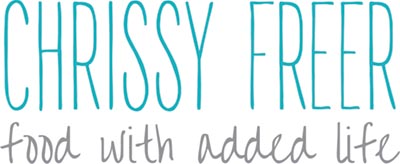There tends to be some confusion/debate around the role of gluten in our diet. You only have to walk down your local supermarket aisles to see that gluten free products have exploded onto our supermarket shelves. Six years ago when my daughter was first taken off gluten, there was only a couple of brands of bread readily available. Now, you are spoilt for choice, with new products seeming to appear every day. Does this mean more and more people are becoming intolerant? Or are they simply choosing to eat gluten free as a health choice?
I find the the term gluten intolerance can be a bit ambiguous, as it is more of an umbrella term, that includes many things. So I like to break it down… and use the following terms:
- Coeliacs disease
- Non Coeliac Gluten Sensitivity
- Wheat sensitivity
Coeliacs disease
Coeliacs is an autoimmune disease, where an individual’s immune system reacts badly to the protein (gluten) found in wheat, rye, barley and oats. This reaction causes damage to the small bowel, and can have a host of symptoms as a result.
Gastrointestinal symptoms can include:
- diarrahea and or constipation
- abdominal pain and cramps
- bloating
- nausea
Other symptoms/complications can include:
- vitamin deficiencies (such as iron, zinc, folate)
- slow growth and weight, especially in infants
- fatigue
- fertility issues
- osteoperosis
It is important to note that some individuals may experience several symptoms, where as others will only exhibit a few, or even appear symptom free.
Coeliacs disease can initially be diagnosed via blood test and at the time you are tested, you must be eating a diet containing gluten. If that is positive, the next step is a biopsy of the bowel and this is the only way to get a true diagnosis. Coeliacs is a serious disease, with the only present cure being the avoidance of all foods containing gluten for life. If you think you may have Coeliacs disease, it is essential that you do not self diagnose, and go see your health professional and get properly assessed. More information can also be found at the national Coeliac Disease website: http://www.coeliac.org.au/
Non Coeliac Gluten Sensitivity
Non Coeliac gluten sensitivity (NCGS) is a term used to describe a set of symptoms (like Coeliacs) that people link to the consumption of gluten containing foods. They either do not test positively to Coeliacs or perhaps have not been tested, but find relief for various gastrointestinal/health issues from avoiding/removing gluten from their diet. There is still substantial debate as to the actual prevalence of NCGS, especially as it is often self diagnosed.
Wheat sensitivity
Another reason some choose to exclude gluten from their diet is due to wheat sensitivity. Like NCGS, this is a term used to describe symptoms linked to the consumption of foods containing wheat (not gluten), and is often associated with irritable bowel syndrome and the low FODMAP diet, an acronym for
Fermentable
Oligosaccharides
Disaccharides
Monosaccharides
AND
Polyols
But am going to save it for another post, as it is a complex issue all on its own, and deserves its own page.
So this massive increase in popularity of following a gluten free diet seems to be a combination of factors. Firstly, more people are being correctly diagnosed with coeliacs, who previously simply suffered symptoms in silence. And secondly, and possibly more significant, is the emergence of NCGS amongst the population.
If adopting a gluten free diet, whether by necessity, or by choice, is becoming more prevalent. What grains (and pseudo grains, that is an edible seed, used as a grain) can you eat on a gluten free diet?
Gluten free grains
- Amaranth (pseudo grain)
- Buckwheat (pseudo grain)
- Chia seeds (pseudo grain)
- Corn
- Millet
- Rice in all its varieties – brown, white, black, red and wild (although wild is not really rice!)
- Sorghum
- Quinoa (pseudo grain)
- Teff
The Great Oat Debate
Whether oats are gluten free, has been a topic of debate for years. Oat protein is not the same as the protein found in wheat, barley and rye. However oats are generally grown in fields that are next to or rotated with crops of wheat. They are then processed on the same machinery, and therefore considered contaminated and not suitable. Some producers are now growing oats in a non contaminated environment, so are considered safe to consume on a gluten-free diet.
Try my quinoa salad for a super healthy vegetarian salad suitable for coeilacs, not only is it a good source of plant protein, it is packed with dietary fibre, linked to reducing the risk of cardiovascular disease, certain cancers and type 2 diabetes. It is also high in manganese, and a good source of phosphorous, magnesium and folate.

